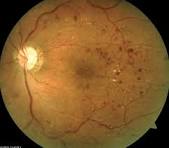INTRODUCTION
Health is wealth—a simple yet profound truth. One sickness can drain a
lifetime of savings, leaving individuals and families in distress. While modern
medicine has made remarkable strides in diagnosing and treating diseases, many
health conditions continue to defy medical solutions, pushing us to explore
alternative approaches.
Natural remedies have been a cornerstone of healing for centuries, long before
the advent of modern pharmaceuticals. Across cultures and civilizations, people
have relied on nature’s gifts—herbs, roots, fruits, and holistic practices—to
restore health and vitality. While this encyclopedia does not seek to undermine
the importance of medical science, it aims to complement it by shedding light
on time-tested natural solutions.
NATURAL REMEDIES FO CEREBRAL PALSY AND INTELLECTUAL DISABILITY
Natural remedies should be used as complementary therapies, not as
replacements for medical care or therapy.
1. Physical Therapy and Exercise
How it works: Regular physical therapy and exercise can help
improve muscle strength, flexibility, and overall mobility in
individuals with cerebral palsy. It can also help maintain a healthy
weight and improve cardiovascular health.
Description: Consult a physical therapist or occupational
therapist to create a tailored exercise program. Exercises may
include stretching, yoga, swimming, or adapted sports.
2. Speech and Language Therapy
How it works: Speech therapy can help individuals with cerebral
palsy or intellectual disabilities improve their communication
skills.
Description: Consult a speech-language pathologist for
personalized therapy sessions and exercises.
3. Diet and Nutrition
How it works: A well-balanced diet can support overall health
and development in individuals with cerebral palsy or intellectual
disabilities.
Description: Consult a registered dietitian for a nutrition plan
tailored to specific needs. Incorporate a variety of fruits,
vegetables, whole grains, lean proteins, and healthy fats into the
diet. Avoid excessive sugar and processed foods.
4. Aromatherapy
How it works: Aromatherapy using essential oils can help
promote relaxation and reduce stress and anxiety.
Description: You can use a diffuser to disperse essential oils into
the air. Popular choices for relaxation include lavender,
chamomile, and frankincense. Ensure that the individual doesn’t
have allergies or sensitivities to these oils.
5. Music Therapy
How it works: Music therapy can improve mood, promote
relaxation, and enhance communication skills in individuals with
disabilities.
Description: Play soothing or favorite music for the individual.
Consider consulting a certified music therapist for more
structured sessions.
6. Herbal Supplements
How it works: Some herbal supplements may have potential
benefits for individuals with cerebral palsy or intellectual
disabilities, but their effectiveness varies.
Description: Consult a healthcare provider before using any
herbal supplements, as they can interact with medications or have
side effects. Common herbs used include ginkgo biloba, ginseng,
and bacopa.
7. Massage Therapy
How it works: Massage therapy can help reduce muscle tension
and improve relaxation.
Description: Seek a licensed massage therapist experienced in
working with individuals with disabilities. Ensure the therapist
understands the specific needs and sensitivities of the individual.
8. Meditation and Mindfulness
How it works: Meditation and mindfulness techniques can
reduce stress and anxiety.
Description: Encourage the individual to practice deep breathing
exercises or guided meditation. There are many apps and local
resources available for this purpose.
Key Consideration
Natural remedies should always be used in conjunction with medical
care and professional therapies. Before starting any new therapy or
remedy, consult with a qualified healthcare provider. The effectiveness
of these approaches varies between individuals, so personalized care
remains essential.



